Narcissistic Personality Disorder's intricate science involves genetic predispositions, neurobiological abnormalities, and distorted self-perceptions. Genetic factors greatly influence susceptibility, interacting with environmental triggers. Neurologically, altered brain structures and connectivity impact behavior. Cognitive biases lead to a grandiose self-image, affecting relationships. Emotional dysregulation and impulsivity further characterize NPD. Therapeutic interventions like cognitive-behavioral therapy and support groups aim to modify maladaptive behaviors. Challenges in treatment include resistance to change and volatile relationships, highlighting the need for a firm yet supportive approach. Understanding these complexities reveals the depth of NPD's scientific underpinnings, hinting at a deeper exploration of its multifaceted nature.
Key Takeaways
- Genetic factors contribute significantly to NPD development.
- Neurobiological abnormalities in brain regions of individuals with NPD.
- Distorted perceptions and self-image shape narcissistic traits.
- Emotional regulation difficulties and impulsive behaviors are common in NPD.
- Therapeutic interventions focus on behavioral change and cognitive-behavioral approaches.
Understanding Narcissistic Personality Disorder
In understanding Narcissistic Personality Disorder, we explore the intricate web of traits that define this complex mental health condition. Individuals with Narcissistic Personality Disorder exhibit a pervasive pattern of grandiosity, a constant need for admiration, and a notable lack of empathy towards others. This combination of traits sets NPD apart as a Cluster B personality disorder in the DSM-5.
The absence of empathy is a hallmark feature, impacting how those with NPD interact with the world around them. Their inability to truly understand or connect with the emotions of others can lead to strained relationships and difficulties in social situations. This fundamental lack of empathy is often at the core of many challenges faced by individuals with NPD.
Understanding this critical aspect of the disorder is essential in providing effective support and interventions for those affected. By delving into the nuances of their personality and the impact of the disorder on their interactions, we can develop more compassionate and informed approaches to help individuals with NPD navigate their mental health journey.
Genetic Factors and NPD Development

Exploring the role of genetic factors in predisposing individuals to developing Narcissistic Personality Disorder sheds light on the intricate etiology of this condition. Genetic factors indeed play a significant role in the development of NPD, with specific genes influencing the susceptibility to this disorder. Research indicates that certain genetic predispositions may increase the likelihood of individuals exhibiting narcissistic traits.
These genetic vulnerabilities interact with environmental influences to shape the manifestation of NPD characteristics. By understanding the genetic underpinnings of NPD, we can gain valuable insights into tailored interventions and treatment approaches. The interplay between genetic factors and environmental influences underscores the multifaceted nature of NPD development.
As we explore further into the genetic aspects of Narcissistic Personality Disorder, we uncover an essential piece of the puzzle that contributes to the in-depth understanding of this complex psychological condition.
Environmental Influences on NPD

Shaping the development of Narcissistic Personality Disorder (NPD), upbringing and childhood experiences exert a notable influence on the formation of narcissistic traits in individuals. Environmental influences, particularly during important developmental stages, play a pivotal role in the onset and progression of NPD. Factors such as parenting styles, early social interactions, and exposure to excessive praise or criticism can notably impact the manifestation of narcissistic tendencies.
To provide a clearer understanding, let's explore the environmental influences on NPD through the following table:
| Environmental Influences | Description | Impact on NPD |
|---|---|---|
| Parenting Styles | Authoritarian vs. Permissive | Shapes self-esteem and interpersonal skills |
| Early Social Interactions | Positive vs. Negative experiences | Influences sense of entitlement and empathy |
| Family Dynamics | Enmeshed vs. Disengaged | Affects perception of self and others |
Neurobiological Abnormalities in NPD
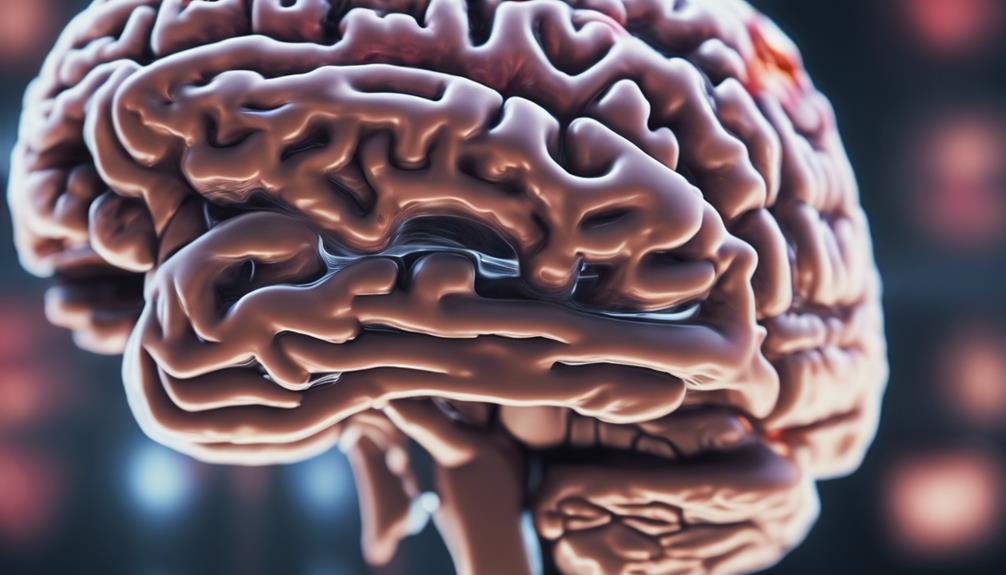
Neuroimaging studies have shown that individuals with Narcissistic Personality Disorder exhibit structural differences in key brain regions like the prefrontal cortex and anterior cingulate cortex. These regions are vital for regulating emotions, empathy, and self-awareness, suggesting that dysfunction in these areas may underlie NPD traits.
Functional MRI studies have further illuminated how those with NPD process information and emotions differently, providing valuable insights for tailored treatment strategies.
Brain Structure Differences
In individuals with Narcissistic Personality Disorder (NPD), distinct differences in brain structure, particularly in the prefrontal cortex and anterior cingulate cortex, have been identified through neuroimaging studies. These brain regions play essential roles in regulating emotions, empathy, and self-awareness. Dysfunction in these areas may contribute to the manifestation of NPD traits.
Functional magnetic resonance imaging (fMRI) studies have revealed abnormalities in brain activity and connectivity among individuals with NPD, providing insights into the neural mechanisms underlying the disorder. The altered brain structure observed in NPD individuals indicates potential neurobiological correlates of the condition, highlighting the biological basis of narcissistic traits.
Understanding these brain variances through neuroimaging techniques can guide treatment strategies and interventions targeting the neural foundations of the disorder.
Impaired Emotional Regulation
Our understanding of Narcissistic Personality Disorder (NPD) is deepened by exploring the neurobiological abnormalities that contribute to impaired emotional regulation in individuals with this condition. Neurobiological abnormalities in NPD can lead to difficulties in managing emotions effectively. Studies have shown altered brain structures, such as the prefrontal cortex and anterior cingulate cortex, in individuals with NPD. Dysfunction in these brain regions may play a role in emotional dysregulation and deficits in empathy that are often observed in individuals with NPD. Functional MRI studies offer valuable insights into how these neurobiological abnormalities impact emotional processing in NPD. Understanding the neurobiological basis of impaired emotional regulation in NPD is essential for developing more targeted and effective treatment strategies.
| Neurobiological Abnormalities in NPD |
|---|
| Altered brain structures |
| Prefrontal cortex |
| Anterior cingulate cortex |
| Emotional dysregulation |
| Empathy deficits |
Brain Regions in NPD
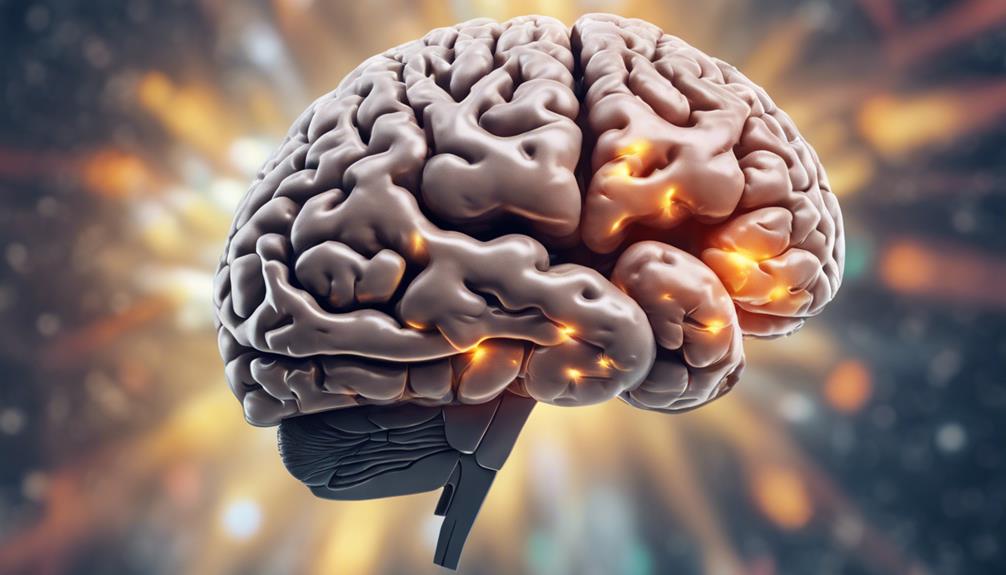
Exploring the brain regions associated with Narcissistic Personality Disorder (NPD) reveals significant differences in structure, particularly in the prefrontal cortex and anterior cingulate cortex. When delving into the neural underpinnings of NPD, we uncover fascinating insights that shed light on the intricate workings of the brain in individuals with this disorder.
- Neuroimaging Studies: Cutting-edge neuroimaging techniques have disclosed distinct structural variations in the brains of individuals with NPD, showcasing abnormalities in key regions such as the prefrontal cortex and anterior cingulate cortex.
- Emotional Regulation: These altered brain regions are essential for managing emotions, empathy, and self-awareness, functions that are often impaired in individuals with NPD, contributing to the characteristic traits of the disorder.
- Behavioral Manifestation: Dysfunction in these specific brain areas may underlie the behavioral patterns and cognitive processes observed in individuals with NPD, offering valuable insights into the neural mechanisms at play in this complex personality disorder.
Self-Referential Processing in NPD
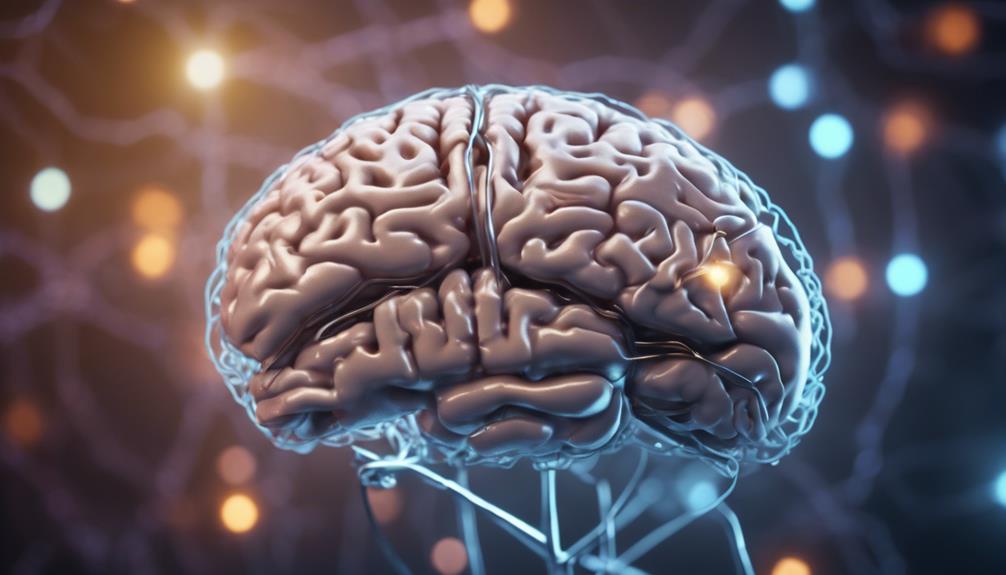
When considering self-referential processing in NPD, it becomes apparent that individuals with this disorder exhibit cognitive biases that enhance their self-image. These biases contribute to the distortion of their self-perception, ultimately reinforcing their grandiose sense of self.
Exploring these mechanisms sheds light on the intricate ways in which narcissistic personality disorder manifests in cognitive processes.
Cognitive Biases in NPD
Individuals with Narcissistic Personality Disorder (NPD) demonstrate heightened self-referential processing, fixating excessively on themselves. In NPD, cognitive biases play a pivotal role in shaping behaviors and attitudes, contributing to an exaggerated sense of self-worth. Here are three key aspects to contemplate:
- Distorted Perceptions: Cognitive biases in NPD lead to distorted views of self-importance and entitlement, influencing how individuals perceive themselves and interact with others.
- Lack of Empathy: These biases can result in a lack of empathy towards others, as individuals with NPD prioritize their own needs and desires above all else.
- Grandiose Self-Image: Self-referential processing biases contribute to the development of a grandiose self-image, reinforcing the need for constant admiration and validation.
Self-Image Distortion Mechanisms
As we examine self-image distortion mechanisms in Narcissistic Personality Disorder (NPD), it becomes apparent that individuals with NPD exhibit heightened self-importance and entitlement, reflecting in their self-referential cognition.
Distorted self-image mechanisms in NPD lead to difficulties in empathizing with others, contributing to the interpersonal challenges often observed in individuals with this disorder.
Research indicates that NPD patients show increased activation in brain regions associated with self-referential processing, highlighting the pivotal role of their exaggerated self-perception.
These abnormalities in self-referential processing play an essential role in the pathology of NPD, shaping the way individuals with this disorder perceive themselves and interact with the world around them.
Understanding these self-image distortion mechanisms is essential for developing effective interventions and therapeutic approaches for individuals with NPD.
Emotional Regulation in NPD
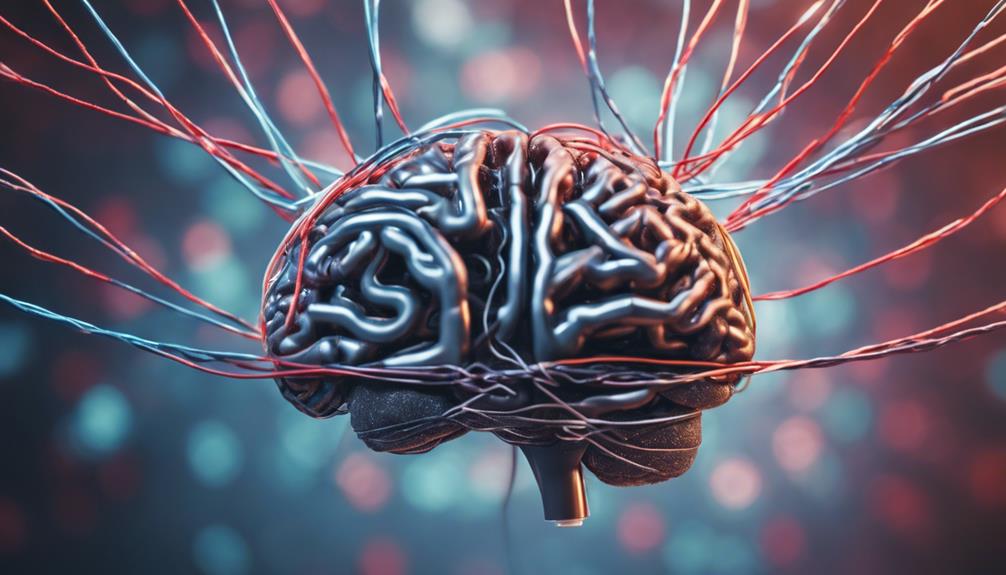
Understanding the impaired emotional regulation in Narcissistic Personality Disorder is crucial for comprehending the challenges individuals with NPD face in managing intense emotions. When it comes to emotional dysregulation in NPD, here are three key points to ponder:
- Impact on Coping Skills: Individuals with NPD may struggle to regulate their emotions effectively, making it challenging for them to cope with stressors and navigate interpersonal conflicts.
- Impulsive Behaviors: Impaired emotional regulation in NPD can lead to impulsive actions and erratic mood swings, further complicating their interactions and relationships with others.
- Core Symptoms Contribution: Research indicates that deficits in emotional regulation play a significant role in shaping the core symptoms of NPD, such as grandiosity and a lack of empathy.
These factors highlight the importance of addressing emotional regulation in the treatment of NPD, focusing on enhancing skills and mechanisms to better manage intense emotions and foster healthier relationships.
Insights From Psychological Studies
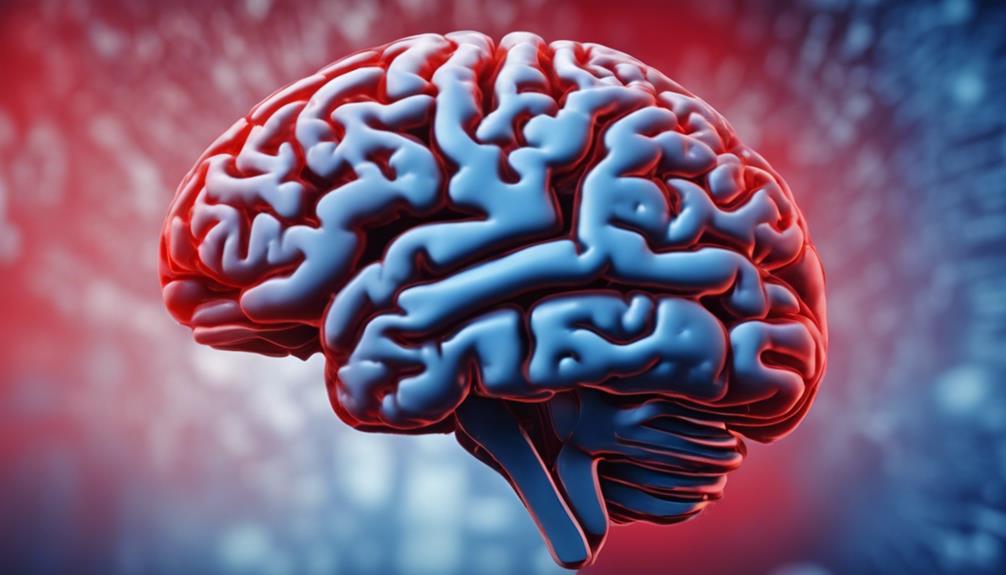
Have psychological studies shed light on the underlying mechanisms of Narcissistic Personality Disorder?
Psychological studies have indeed provided valuable insights into the complex nature of NPD. Researchers have uncovered a significant link between NPD and oxidative stress, which can have profound effects on both the brain and body. Elevated levels of 8-OH-DG, a marker of oxidative stress, have been observed in individuals with NPD, suggesting a potential biological basis for this disorder. These findings raise questions about the role of oxidative stress in causing personality disorders like NPD and how it might contribute to characteristics such as hypersensitivity.
The exploration of these biological mechanisms is gaining traction due to the similarities in oxidative stress biomarkers between NPD and Borderline Personality Disorder (BPD). Understanding these underlying processes is essential for developing effective interventions tailored to the specific needs of individuals with NPD. By delving into the findings of psychological studies, we can deepen our comprehension of NPD and pave the way for more targeted treatment approaches in the future.
Targeted Interventions for NPD
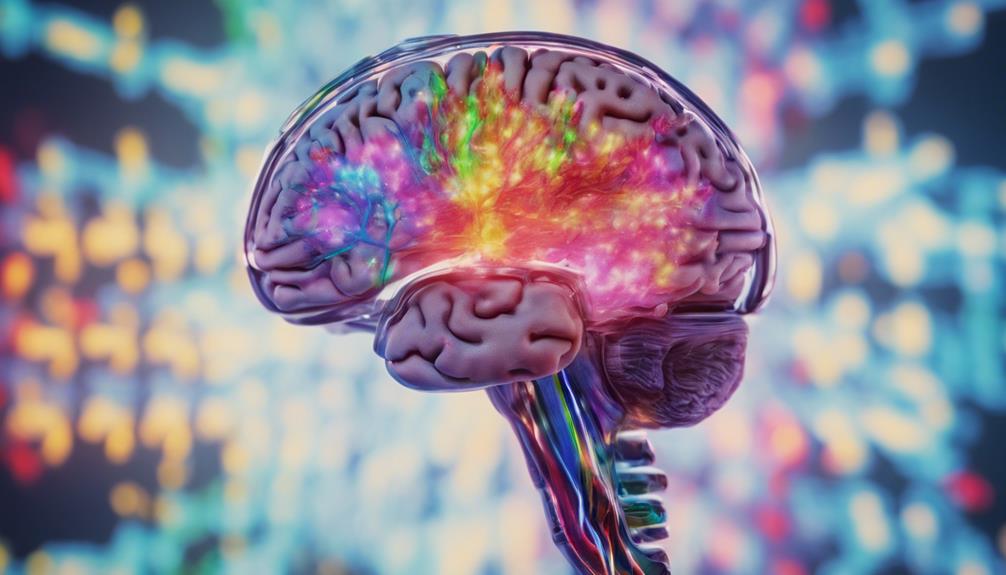
When addressing Narcissistic Personality Disorder (NPD), targeted interventions like therapy, cognitive behavioral approaches, and support groups play significant roles in the treatment process.
These interventions aim to help individuals with NPD navigate their maladaptive behaviors and thought patterns effectively.
Therapy for NPD
Our targeted interventions for Narcissistic Personality Disorder (NPD) emphasize maximizing behavioral change and therapeutic progress in affected individuals. When it comes to therapy for NPD, here are three essential strategies:
- Short-term Psychodynamic Psychotherapy: Research suggests positive outcomes from this approach, focusing on addressing underlying conflicts and enhancing self-awareness.
- Tailored Psychotherapeutic Methods: Customized interventions are vital for patients with both NPD and co-existing life-limiting illnesses to guarantee effective treatment.
- Insight into Personality Factors: Efforts are made to understand how personality traits impact behavior in NPD patients, aiding in developing personalized therapeutic plans.
These targeted interventions aim to foster growth and positive changes in individuals grappling with Narcissistic Personality Disorder.
Cognitive Behavioral Approaches
Cognitive-behavioral approaches play a vital role in targeting maladaptive behaviors in individuals with Narcissistic Personality Disorder (NPD), aiming to address cognitive distortions and promote self-awareness. These interventions help NPD patients recognize and challenge negative thought patterns, leading to improved emotional regulation.
By utilizing targeted cognitive-behavioral strategies, individuals with NPD can develop healthier coping mechanisms and enhance their interpersonal skills. Cognitive-behavioral therapy plays an essential role in guiding NPD patients towards self-awareness, enabling them to understand and modify maladaptive behaviors.
Through structured sessions and specific techniques, individuals with NPD can work on changing their cognitive processes, ultimately aiding in their overall well-being and social interactions. The focus on cognitive-behavioral approaches underscores the importance of addressing both behavior patterns and thought processes in the treatment of Narcissistic Personality Disorder.
Support Groups for NPD
Support groups for individuals with Narcissistic Personality Disorder (NPD) serve as invaluable platforms for fostering a sense of community and facilitating personal growth through shared experiences and mutual support. These groups provide a safe space for individuals to share their challenges and receive validation, while also offering education on NPD symptoms, coping strategies, and communication skills.
Peer support within these groups can greatly reduce feelings of isolation, helping individuals develop self-awareness and empathy. Participation in NPD support groups has been shown to improve emotional regulation, self-esteem, and overall mental well-being. Targeted interventions in these groups focus on building healthier behaviors, managing narcissistic traits, and fostering personal growth.
Joining a support group can be a proactive step towards enhancing mental well-being for those with NPD.
Treatment Strategies for NPD
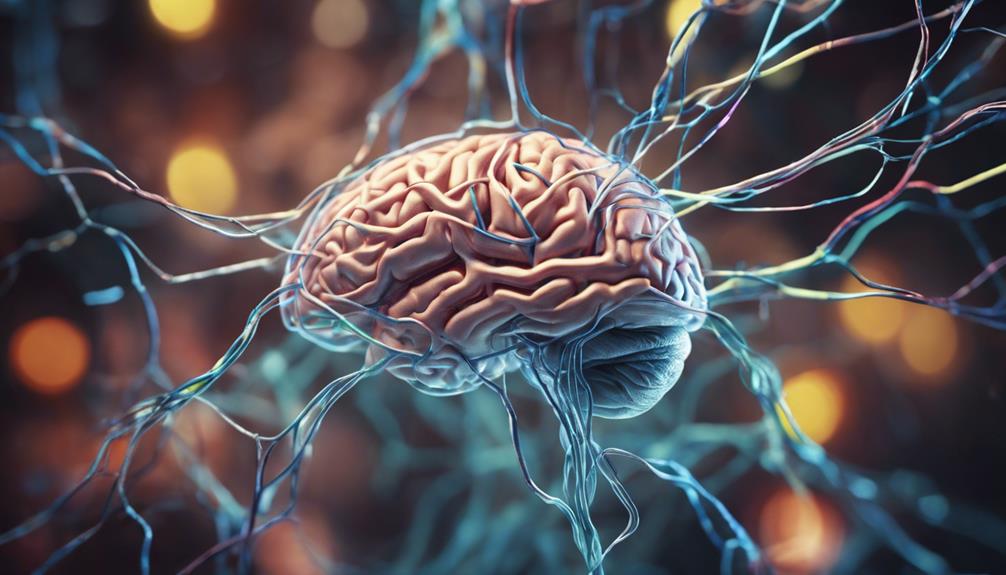
When considering treatment strategies for Narcissistic Personality Disorder (NPD), it's vital to recognize the positive impact that short-term psychodynamic psychotherapy has shown in limited research studies. This approach focuses on understanding the unconscious processes that drive behavior, leading to meaningful changes in how individuals with NPD relate to themselves and others.
Psychotherapeutic methods aim to maximize behavioral change and therapeutic progress by establishing strong boundaries and creating a team-oriented dynamic. Providers may encounter challenges such as poor boundaries, ambivalence towards change, and help-rejecting behaviors when working with NPD patients.
Particularly, individuals with NPD who also have life-limiting illnesses may exhibit resistance to change and volatile relationships, affecting treatment outcomes. By employing structured interventions and maintaining a supportive yet firm approach, clinicians can help NPD patients navigate towards healthier patterns of relating and functioning.
This proactive stance is essential in addressing the complexities of treating NPD effectively.
Frequently Asked Questions
What New Science Reveals About Narcissistic Personality Disorder?
New research explores narcissistic personality disorder, uncovering connections to oxidative stress impacting our brain and body. Elevated levels of 8-OH-DG, a stress biomarker, are found in both NPD and BPD.
NPD traits like arrogance and lack of empathy affect emotional responses, while hypersensitivity and impaired shame recognition impact social interactions. Lack of FDA-approved treatments underscores the need for further investigation into NPD's biological mechanisms.
What Is the Science Behind Narcissistic Personality Disorder?
The science behind narcissistic personality disorder revolves around oxidative stress, impacting both the brain and body. Research by Royce Lee, MD, revealed elevated levels of 8-OH-DG, a biomarker of oxidative stress, in individuals with NPD.
This disorder, marked by arrogance, lack of empathy, and a strong desire for attention, poses challenges for treatment due to limited FDA-approved options. Understanding the biological mechanisms at play sheds light on the complexities of NPD and its potential links to other personality disorders.
What Is the Root of Narcissism?
The root of narcissism can be traced back to various historical references, like the myth of Narcissus and the works of early psychological theorists. Sigmund Freud significantly connected narcissism to the ego, paving the way for further understanding.
Over time, research and clinical observations have solidified narcissism as a recognized personality disorder. The complex nature of narcissism has garnered increased interest, particularly in the 2000s, shedding light on its multifaceted origins.
What Is the One Question to Identify a Narcissist?
When looking to identify a potential narcissist, a simple question about whether they believe they're more intelligent and deserving than others can provide valuable insights.
This question, often included in tools like the 'Narcissistic Admiration and Rivalry Questionnaire,' helps gauge self-reported grandiosity and entitlement, key indicators of narcissistic traits.
Conclusion
In unraveling the complex web of narcissistic personality disorder, we've discovered a tapestry woven with genetic predispositions, environmental influences, and neurobiological abnormalities.
By understanding the science behind NPD, we can better navigate treatment strategies and interventions to help those affected.
Let's continue to shine a light on this disorder, offering support and guidance to those in need.
Together, we can work towards a brighter future for individuals battling NPD.










